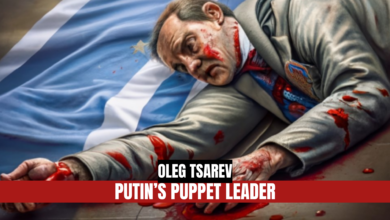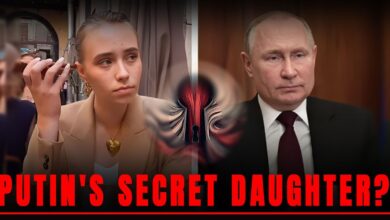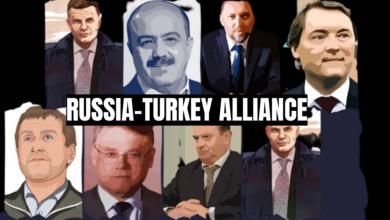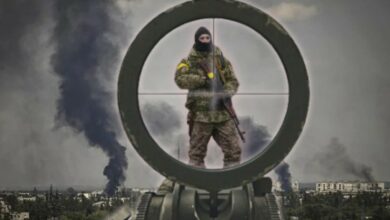Russian Mafia Money-Laundering Case Including Ilya Traber Ends in Acquittal in Spain 2023
Spanish judges have acquitted 17 Russians over alleged large-scale money-laundering for the Russian mafia

Key Points
- Russian MP Vladislav Reznik, alleged gang boss Gennady Petrov, and others were acquitted by the National Criminal Court.
- Nine suspects, including Petrov, remain at large; there is insufficient evidence linking investments in Spain to organized crime proceeds.
- The case centers on the Tambovskaya-Malyshevskaya gang from St. Petersburg, accused of money laundering in Spanish properties and businesses.
- Prosecutors claimed the gang’s money laundering began in the 1990s with affluent Russians buying luxury villas in Costa del Sol and the Balearic Islands.
- Allegations stated over €50m ($57m; £44m) of Russian mafia money laundered in Spain.
- The accused included Vladislav Reznik, former chair of the Russian parliament’s financial markets committee, and his wife Diana Gindin.
- Reznik, a supporter of President Vladimir Putin and a member of the United Russia party, acknowledged friendship with alleged gang leader Ilya Traber during the trial (as reported in February by Spain’s El Mundo).
Overview of the Russian Mafia Money-Laundering Case
In 2008, Spanish authorities conducted “Operation Troika,” apprehending 20 Russian mafia suspects, including Ilya Traber, reportedly associated with Russian MP Vladislav Reznik. The case centered on the Tambovskaya-Malyshevskaya gang, accused of funneling funds from offshore accounts into Spanish properties.
However, in 2018, Spanish judges acquitted 17 Russians, including Reznik and Traber, citing insufficient evidence linking their Spanish investments to organized crime proceeds. Nine other suspects, including alleged gang leader Gennady Petrov, remain at large. In 2016, arrest warrants were issued for 12 Russians, including senior officials, tied to the Tambov Gang, seeking trial in Spain.
Legal proceedings in Spain
Legal proceedings in Spain, particularly in the context of the Russian mafia money-laundering case, navigate the Spanish civil justice system. In Spain, litigating parties are required to enlist the services of lawyers, and often, a “procurator” serves as an administrative intermediary between the lawyer and the court. The costs associated with litigation in Spain can be substantial, and the Spanish court system experiences delays, impacting access to justice. Moreover, court proceedings in Spain mandate the use of the Spanish language, and adherence to specific legal concepts and procedures is essential within the Spanish legal system.
For in-depth insights into the legal system in Spain and dispute resolution law, it is recommended to consult legal resources specific to Spain. The legal landscape and procedures may have evolved due to legal, market, or practice developments.
Background
Genesis of the Money-Laundering Case
Russian businessmen Gennady Petrov and Alexander Malyshev, identified as key players in the case, faced charges of operating a criminal organization in Spain. Their associates, arrested during Operation Troika at health resorts in Malaga, Levante, and the Balearic Islands, also played pivotal roles in the alleged criminal activities.
The Spanish indictment, highlighted in Novaya Gazeta No. 50 for 2008, provided detailed insights into the actions undertaken by Petrov, Malyshev, and their key accomplices. Operating from headquarters in Malaga, Levante, and the Balearic Islands, these individuals, recognized as central figures in the case, were involved in a range of illicit activities, including smuggling, fraud, bribery, drug trafficking, and contract killings.
Examining magistrate Baltasar Garzón, the lead investigator, explicitly linked the arrested key players, Gennady Petrov and Alexander Malyshev, to the Tambov-Malyshev criminal organization. This connection solidified the link between Gennady Petrov and Vladimir Kumarin (Barsukov), the leader of the Tambov group, who had been arrested in Russia in 2007 for planned and attempted murder, as well as robbery.
The indictment specifically identified Mr. Petrov as one of the key bosses of the Tambov criminal organization. It highlighted his past incarceration in the same Russian detention facility as Sergei Kuzmin, another key player in the case, with whom he had established several firms.
The origins of the investigation can be traced back to May 1997, when the anti-organized crime unit in Marbella sought Russia’s assistance through the Spanish Embassy in Moscow. Gennady Petrov and Sergei Kuzmin, who founded the Hisparas Company in January 1997, were prominent Russian citizens whose substantial real estate investment was the subject of the investigation. These key players drew particular attention from investigators at that time.
Key Players
«Number one»: Ilya Traber
Ilya Traber was one of the alleged gang leaders arrested in 2008 as part of “Operation Troika,” which targeted the Tambovskaya-Malyshevskaya gang. Spanish investigators suspect that Traber had close ties with Russian MP Vladislav Reznik, one of the 18 suspects tried in Spain in 2018 for an alleged €50 million money-laundering scheme linked to the Tambovskaya-Malyshevskaya gang.
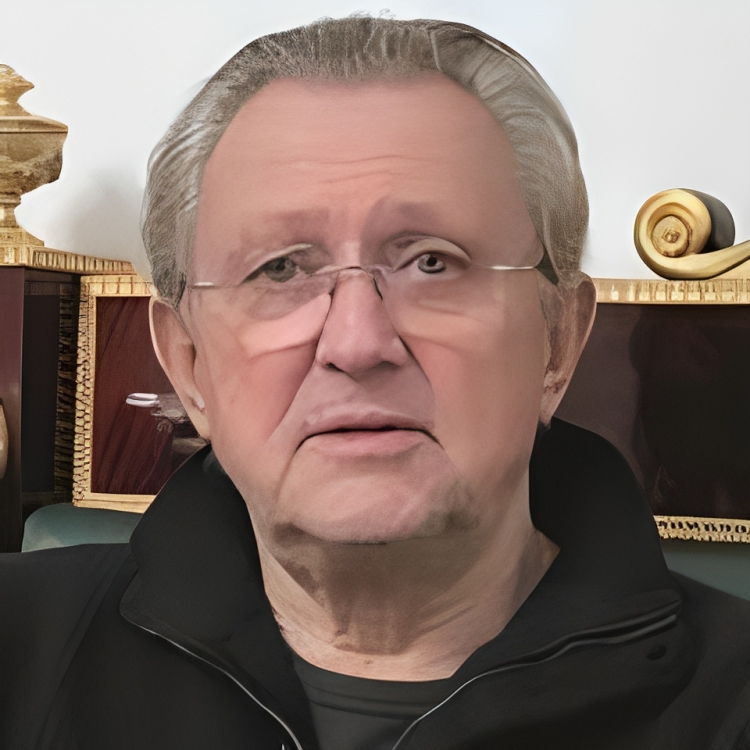
History and Profile
Ilya Traber, also known as “Antiquarian,” holds a significant position in the Russian criminal underworld, recognized as a leader of the Tambov-Malyshev organized criminal group. Born in Omsk in 1950, Traber initially served in the Soviet submarine fleet before establishing himself as a major antique seller in Saint Petersburg during the late 1980s.
Traber’s involvement in criminal activities, including suspected participation in money laundering and a criminal conspiracy, became apparent in 2016 when a Spanish court issued an international warrant against him. Spanish investigations revealed that Traber, along with other leaders of the Tambov-Malyshev organized crime group, had settled in Spain in the mid-1990s. They created a network of hundreds of companies, registering real estate and repeatedly reselling it at increasing prices through controlled shell companies.
Further implicating Traber in criminal connections, he is associated with Gennady Petrov, the leader of the Malyshev organized crime group. Traber’s role extends to income from smuggling activities in border ports, showcasing his international reach. Traber was domiciled in Switzerland in the mid-2000s, engaging in personal tax arrangements and acquiring substantial property in La Tour-de-Peilz, Vaud. Additionally, he maintained an impressive collection of paintings in the basement of his villa.
Traber’s considerable wealth, estimated to be worth at least $1.5 billion, and extensive business operations, including ownership of the coal terminal at the port of Ust-Luga, highlight his notoriety. His complex profile underscores his involvement in both legitimate business activities and illicit operations, emphasizing the intricate nature of his influence and the challenges associated with addressing his criminal activities.
Allegations Against Traber
Ilya Traber, accused of organized criminal group participation, contract killings, and money laundering, is a key figure in the Tambov-Malyshev criminal group, recognized as a Russian businessman, mafia boss, and an associate of Vladimir Putin. In 2016, a Spanish court issued an international warrant for Traber, suspecting him of money laundering and criminal conspiracy. Spanish investigations revealed Traber’s role in a network of companies, registered real estate, and subsequent resale through controlled shell companies.
Spanish security services recorded phone conversations with Gennady Petrov, the leader of the Malyshev group, and revealed Traber’s involvement. Traber derived income from smuggling at the Vyborg border port and a large Primorsk industrial port. His criminal connections and association with influential figures emphasize his significant role in the Russian criminal underworld and its broader international implications.
In addition to criminal allegations, Traber has faced legal challenges, losing lawsuits to Vadim Serdyukov, the son of the former governor of the Leningrad region. Traber’s intricate profile reflects engagement in both lawful and illicit pursuits, highlighting the complexities of addressing his criminal activities.
Timeline of Ilya Traber
2016:
- Spanish Court Issues Warrant: A Spanish court has placed Ilya Traber on the international wanted list due to suspicions of money laundering and involvement in a criminal conspiracy.
In 2016, a Spanish court issued an international warrant for Traber’s arrest, suspecting him of money laundering and involvement in a criminal conspiracy. The Spanish investigation revealed that Ilya Traber, along with other leaders of the Tambov-Malyshev organized crime group, had established a network of hundreds of companies in Spain during the mid-1990s.
They registered real estate and subsequently resold it at inflated prices through shell companies controlled by the same individuals, essentially engaging in self-directed transactions for money laundering purposes. Spanish authorities believed that these activities facilitated the laundering of funds from illicit sources such as drug smuggling, arms trafficking, and “communications trafficking.”
Spanish security services intercepted and recorded telephone conversations with Gennady Petrov, the head of the Malyshev organized crime group, which revealed Traber’s involvement. These conversations revealed that Ilya Traber derived income from smuggling activities at the border port of Vyborg and a significant industrial port in Primorsk. After fleeing the investigation in Western Europe, where he owned numerous luxury real estate properties, Traber returned to Russia.
The connection between Putin and the Tambov and Malyshev-organized criminal groups goes beyond his friendship with Traber. The longstanding affiliation of the nuclear power president with the mafia over several decades sheds light on the nature of the current regime. This association may explain Putin’s inclination to consolidate personal power through dictatorship, as well as his aggressive and seemingly irrational foreign policy.
2010:
- Pirate Incident: Traber’s name is linked to an incident involving pirates capturing the vessel “Arctic Sea,” with connections to affiliated structures in Estonia.
March 2:
- Ilya Traber is involved in an incident related to the capture of the vessel “Arctic Sea” by pirates.
- Traber’s partner, pirate Dmitris Savins, is mentioned as the top manager and co-owner of the structures of the Estonian company Alexela Logistics, which is the largest manager of terminals in the small republic of Estonia.
- Alexela Logistics is a co-owner of the “First Murmansk terminal,” managing transshipment at the northern borders of Russia.
- Affiliated individuals from the administration of the Vyborg area in the Leningrad region, including Georgy Poryadin, Alexander Petrov (a criminal authority), and Igor Konstantinovich Patraev, are mentioned as founders of the “First Murmansk terminal.”
March 2: Later in 2010:
- Ilya Traber has been passing under different names, such as Ilyas Tramper and Ilias Traver, during travels and is reported to have mysterious numbers on personal papers that distinguish him from typical Russian certificates.
- The mention of Traber’s involvement with pirates and the connection to the “Arctic Sea” incident sparks interest and media coverage.
September 7:
- Ilya Traber is again mentioned in connection with a scandal involving Vitaly Arkhangelsky, the head of the Petersburg group “Oslo Marine,” who had run into debt with the bank “St. Petersburg” for 4 billion rubles.
2009:
- The bankruptcy of Oslo Marine: Traber’s name surfaces in connection with the bankruptcy of the Petersburg group “Oslo Marine,” with speculation about links to Ilya Traber’s affiliated structures.
- September 21: Ilya Traber is mentioned in connection with a scandal involving the head of the Petersburg group “Oslo Marine,” Vitaly Arkhangelsky. Arkhangelsky ran into debt to the bank “St. Petersburg” for 4 billion rubles, and as a result, the bank took control of the port and insurance assets of “Oslo Marine.” Journalists note that the aggressive credit policy and ambitious business projects of Arkhangelsky’s group were possibly connected to Ilya Traber. The strategy of Arkhangelsky’s group involved generating affiliated structures with billions of authorized capital stocks, making them attractive to bankers.
- March 2: Ilya Traber is involved in an incident with pirates capturing the vessel “Arctic Sea.” Journalists report on one of Traber’s partners, pirate Dmitris Savins, who is the top manager and co-owner of the structures of the Estonian company As Alexela Logistics, the largest manager of terminals in Estonia. Alexela Logistics is a co-owner of “First Murmansk Terminal,” which manages transshipment at the northern borders of Russia. The founders of this company include high-ranking individuals associated with Traber, such as the former head of the Vyborg area, Georgy Poryadin, criminal authority Alexander Petrov, and Igor Konstantinovich Patraev.
These events provide insights into Ilya Traber’s involvement in various business activities, including the scandal with “Oslo Marine” and his connections with individuals linked to the shipping industry and terminals in Estonia.
2008:
- Shipbuilding and Political Alliances: Traber is linked to oligarch Yury Kovalchuk in shipbuilding plans and political projects.
- February 15: Journalists report on the strategic alliance between Ilya Traber and oligarch Yury Kovalchuk, focusing on shipbuilding plans and the construction of “ice” shipyards. Traber’s interests in shipbuilding, particularly in the Far East, the North, and the North-West of Russia, are highlighted. It is suggested that Traber and Kovalchuk’s collaboration could outdo more influential enterprises, diverting state investments from the well-established Arkhangelsk shipbuilders.
- June 19: Ilya Traber is mentioned in connection with the vice governor of the Leningrad region, Rashid Ismagilov, who applied for the post of governor. Reports indicate Ismagilov’s close acquaintance with Alexander Sabadash, a former senator from the Nenets autonomous region and vodka king. During an attempt to detain Sabadash in Vyborg, Ismagilov and Ilya Traber are found together. Speculations arise about their meeting with Sabadash.
- September 7: After Traber’s arrest in Spain, journalists recall Ilya Traber in relation to intercepted telephone conversations of Gennady Petrov made by Spanish special services. Traber is associated with the extraction of income from the border port of Vyborg and the large industrial port in Primorsk. Notably, Traber is one of the few individuals who avoided arrest during the Spanish police operation “Three,” and he is believed to be in Russia at the time.
2002:
- Business Expansion: Traber is described as a businessman with significant positions in the Petersburg seaport, holding roles in joint-stock companies.
In 2002, Ilya Traber was described as a significant businessman with serious positions in the Petersburg seaport, particularly holding membership in the boards of directors of two joint-stock companies: “Seaport of SPb” and “ABIP” (Association of the banks investing in the port). At that time, “ABIP” also served as the operating company of “AO Seaport of SPb.”
The narrative indicates that the “capture” of the port by Traber commenced in 1994, suggesting a strategic interest in becoming a major player in the fuel industry in Petersburg. The development of the port was initiated from the fourth area, where the bulk oil terminal, the largest in the northwest region, was located.
The report underscores Traber’s growing influence and involvement in various sectors, including the seaport and, by extension, the maritime industry. His role as a member of the boards of directors of key joint-stock companies highlighted his significance in the management and decision-making processes within these crucial entities.
1999:
By 1999, Ilya Traber, Victor Korytov, and Boris Sharikov emerged as the primary figures exercising control over the seaport. This consolidation of power was achieved through a strategic division of the parent enterprise into smaller entities. Each of the individuals, Traber, Korytov, and Sharikov, became sole masters of specific portions of the property within the seaport, thereby solidifying their dominance over the crucial maritime facility.
This development in 1999 represented not only a reconfiguration of ownership but also a redefinition of the management dynamics within the Seaport. The trio’s ability to navigate the intricacies of business restructuring allowed them to assert control over key aspects of the port’s operations and assets. The division of the parent enterprise into smaller entities was a strategic move that positioned Traber, Korytov, and Sharikov as the primary decision-makers and beneficiaries within the maritime domain, marking a notable chapter in the history of the Seaport of SPb.
1998:
- Foreign Ownership of Seaport: By 1998, foreign companies owned the majority of voting shares in “Seaport of SPb,” a significant shift in ownership that raises questions about the handling of privatization.
In 1998, the landscape of the “Seaport of SPb” underwent a significant shift as the majority of voting actions came under the control of two foreign companies situated in Great Britain and Liechtenstein. This change in ownership structure marked a pivotal moment in the governance of the seaport.
1997:
- Arson and Assassination: Traber’s name is associated with the arson of the Leningradskaya Hotel and the assassination of Mikhail Manevich, head of the St. Petersburg City Property Management Committee.
1995:
- Antique Business and Renovation-Cultural Center: Traber gained attention for his involvement in the antique business, particularly with the creation of the renovation-commercial center “Antiquary.”
1993:
- Negative Publicity: Negative publications about Traber emerge, including accusations of incompetence and connections with criminal structures in the antique business.
1991:
- Positive Exposure: Traber initially gained positive exposure in 1991 for his involvement in the renovation-commercial center “Antiquary.”
1989:
- Seaport Expansion Begins: Traber begins the process of expanding his influence in the St. Petersburg seaport, with plans to become a significant player in the fuel industry.
«Number two»: Vladimir Putin
The trial concerning money laundering by Russian individuals associated with the Tambov-Malyshevskaya gang concluded in Madrid. Prosecutors have requested a five-year prison sentence and a 30 million euro fine for State Duma deputy Vladislav Reznik, charged with laundering over 7 million euros. Investigators allege close collaboration with gang leaders Ilya Traber and Gennady Petrov, who are currently evading Spanish authorities in St. Petersburg.
While the Russian Prosecutor’s Office initially showed interest in the Tambovskaya gang, it later actively intervened in the proceedings. Court hearings uncovered wiretapped conversations involving Gennady Petrov, revealing assistance from state officials, security agencies, and even Vladimir Putin himself. The Insider provides a detailed account of the final court hearing.
“Traber is superior to Putin because Putin used to work for him”
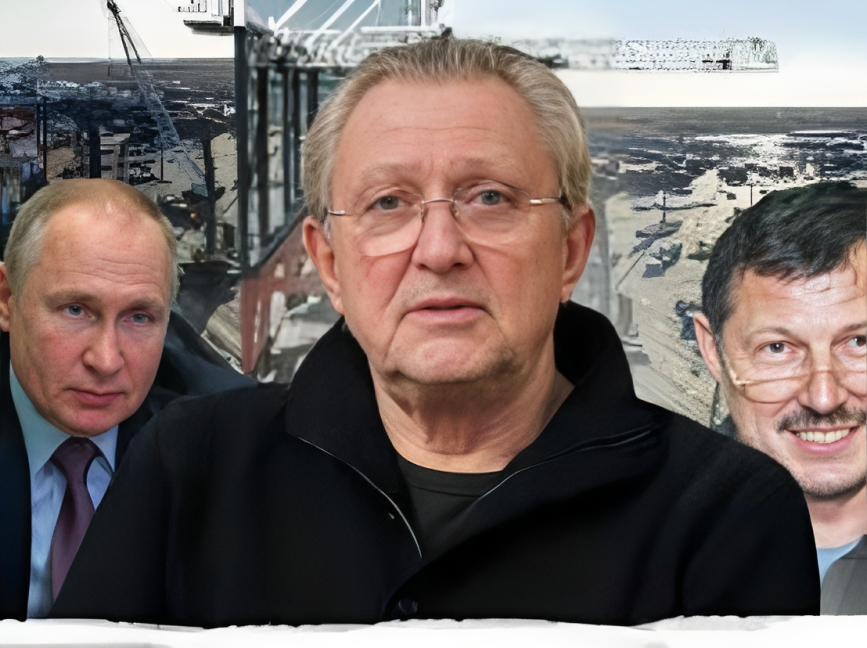
In response to inquiries about Ilya Traber’s attendance at Putin’s birthday celebrations, the lawyer, in a surprising revelation, asserts, “Ilya Traber holds a superior position to Putin because, to my knowledge, Putin worked for him during the 1990s when he served in the St. Petersburg Mayor’s Office.”
During the trial, Spanish attorney Juan Untoria, believed to be Gennady Petrov’s right-hand man, initially asserted that Petrov had connections with Reyman, Reznik, and Putin. However, he later changed his statement, claiming ignorance about Reyman and Putin. Surprisingly, Putin’s name resurfaces in a different context concerning the Tambovskaya gang’s takeover of German shipyards.
On March 14, the prosecution presented evidence of money laundering by Petrov’s associate, Nail Malyutin, in Germany. The Insider extensively covered this episode in our story, “‘ They claimed to act in Medvedev’s interests’: How the Mafia laundered money at German shipyards.” In summary, the plan called for establishing a joint venture with the German shipyards in Wismar and Warnemünde, a facility in Mykolaiv, Ukraine, and Vyborg Shipyard, which was under the control of Sergei Kolesnikov and Ilya Traber’s associates, as well as Lirus Management AG, an offshore company with its headquarters in Liechtenstein (and which Kolesnikov claimed was benefiting from Vladimir Putin). The trial revealed new details of this infamous case.
Civil Guard experts presented a detailed explanation of how Financial Leasing Company, a subsidiary of the state-owned United Aircraft Corporation (UAC), purchased German entity Wadan Yards. The process involved obtaining loans from German and Russian banks, issuing bonds underwritten by Sberbank, and channeling the funds to a Luxembourg subsidiary, ultimately causing the shipyards’ bankruptcy. Malyutin, as part of the embezzlement scheme, used funds to acquire a villa in Mallorca.
Wiretapped phone conversations presented at the trial implicated Malyutin in discussions with gang boss Gennady Petrov about the shipyards’ acquisition through straw owner Andrei Burlakov. The conversations hinted at Kremlin approval through Sergei Kolesnikov, a businessman in Putin’s inner circle and Petrov’s neighbor. Notably, Kolesnikov had financed the construction of “Putin’s Palace” at Cape Idokopas, with Petrov’s lawyer managing the company listed as its owner. The discussions also alluded to Kolesnikov speaking to the “top man,” aiding Petrov in lobbying for a specific individual.

In the presented investigation, Malyutin and Petrov organized a meeting on May 11, 2008, to discuss the shipyard deal. Subsequently, on May 25, 2008, Petrov and Malyutin mentioned in a conversation that Burlakov was slated to meet Medvedev in person regarding the deal. Following this, Burlakov arranged a meeting with Petrov. Malyutin and Petrov discussed a meeting with a person known only as “number one,” whom Spanish investigators believed to be Vladimir Putin, on May 16, 2008. Another conversation between Malyutin and Petrov is played in court, where Malyutin mentions keeping in touch with Sergei and assures Petrov that everything is going well with the ships, with the “top man” expressing intent to consider the matter.
Shortly after these events, Andrei Burlakov, the official co-owner of the shipyards, faced arrest in Russia, was released on bail and was subsequently assassinated. His daughter Anastasia claims that the Yusufovs had approached him just before these incidents, attempting to persuade him to relinquish his stake at an undervalued price.
In another conversation, Petrov and Duma deputy Reznik expressed concern about potential issues at a lower level despite confirmation that “the Czar” had already signed the necessary papers.
Tambovskaya-Malyshevskaya gang
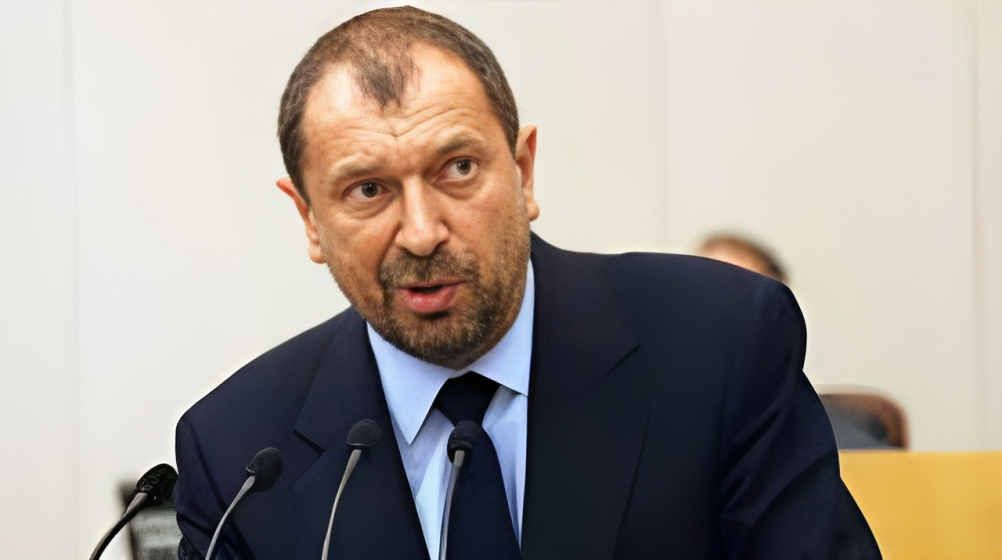
The case centered on the Tambovskaya-Malyshevskaya gang, implicating key figures such as Gennady Petrov, Alexander Malyshev, Sergei Kuzmin, and Anton Petrov.
A Spanish judge has issued arrest warrants for 17 Russians, including high-ranking officials, believed to be connected to one of Russia’s major criminal syndicates operating in Spain, according to a court document reviewed by Reuters.
After a thorough 10-year investigation into the Tambov Gang’s activities, authorities want to bring people to Spain for trial, including Vladislav Reznik, a member of Russia’s lower house of parliament, as explained in the secret document.
The document also implicates General Nikolai Aulov, the deputy head of the Federal Drug Control Service and a former KGB colleague of President Vladimir Putin. Additionally, Igor Sobolevsky, a former deputy head of the Russian prosecution service’s investigation committee, is named among other prominent Russian officials.
Reznik, who has consistently denied these allegations, remains adamant. Russian Prosecutor General Yuri Chaika stated in March that Russia has no intention of extraditing Reznik.
Legal Proceedings
A paper from the FSB and other arguments of the defense
The trial continues, with Spanish Civil Guard officers disclosing that, as per a French intelligence report, Traber was allegedly a covert co-founder of the Petersburg Fuel Company alongside Vladimir Kumarin. In response, attorney Roberto Mazorriaga seeks to introduce additional “exonerating documents” to the court.
One such document is a form from the Directorate of the FSB for St. Petersburg on Liteyny Prospect, commencing with an address to Traber himself: “Dear Mr. Traber,…” Another document originates from Vyborg City Court, both aimed at confirming Traber’s lack of grievances.
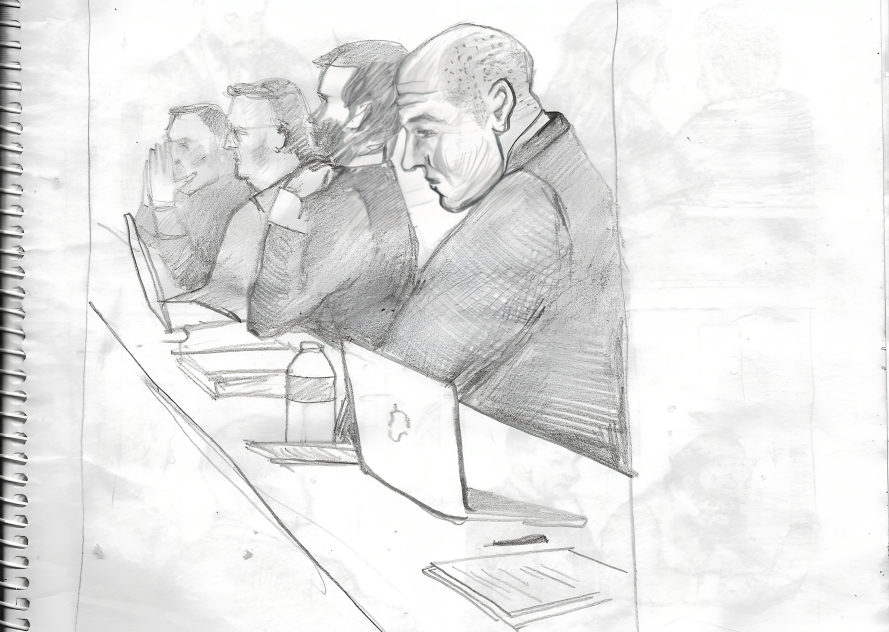
Roberto Mazorriaga alleges that Ilya Traber is connected to a high-ranking CNI officer (Spanish intelligence service), presumably to influence the judge. Mazorriaga later clarifies to The Insider that he referred to Jorge Descallar, the former ambassador of Spain to the United States. Descallar happened to be Traber’s neighbor in Mallorca, and police from his security guard once stayed at Traber’s place due to a lack of alternative options, according to the attorney.
The judge remains unimpressed by a defense witness for Jesús Angulo, suspected of money laundering for Petrov and Malyshev. The witness claims to possess evidence of Angulo’s innocence—a number of invoices—but eventually admits to forgetting the originals in his office and is subsequently dismissed.
On March 20, a heated debate revolves around wiretapped conversations between Petrov and his associates, providing insight into their connections. Interpreters translate these conversations in real time. The recordings suggest that Petrov had direct access not only to Duma deputy Reznik but also to General Nikolai Aulov (then deputy director of the Federal Drug Control Service) and Igor Sobolevsky, deputy head of the Investigative Committee. Additionally, Petrov and his associates discuss Herman Gref, who is allegedly involved in lobbying against granting gold-mining licenses. They decide that Petrov should speak with him during his visit to Moscow.
The wiretapped conversations also touch on a customs check incident when “all the flights were turned upside down,” mentioning “Slava.” On November 1, 2007, Malyutin called Petrov to relay Herman Gref’s invitation to the celebration of Sberbank’s 160th anniversary on November 12. Gref and Malyutin had previously met at the St. Petersburg Mayor’s Office, where, according to a local businessman seeking asylum in Europe, Gref’s office in the 1990s featured an individual referred to as “Nail Anvarovich,” who introduced himself as an attorney at law. The description of this person aligns with Malyutin.
On December 11, 2007, Petrov received a call from Leonid Khristoforov, who had been interrogated in St. Petersburg regarding Galina Starovoitova’s murder. They discuss the possibility of Medvedev asking V. V. to become Prime Minister, anticipating a change in government leadership. The conversation underscores the uncertainty surrounding political developments.
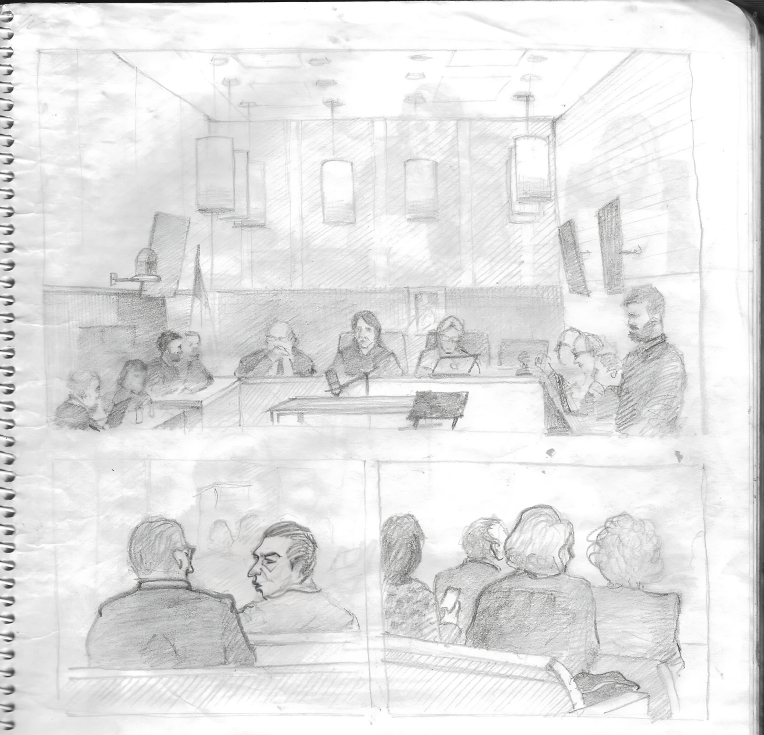
In October 2007, Gennady Petrov engages in a conversation with the notorious crime boss Ded [«Grandpa»] Khasan (real name Aslan Usoyan), who is later shot in Moscow. The discussion revolves around business matters in Krasnodar.
During one conversation, the term «poddelat’» [Rus. «to forge»] (papers) is used, leading to immediate protests from the defense. The defendants express their indignation, claiming, «What they meant was to finalize! This word can have several meanings.» The interpreters, however, disagree. At the session’s conclusion, defendant Yulia Ermolenko confronts one of the interpreters aggressively. In response, the judge calls out, «Police!» prompting Ermolenko to step back.
The defense for Reznik contends that the repeated mention of “Slava” in Petrov and Traber’s conversations does not necessarily refer to Vladislav Reznik. Reznik still uses the same phone number and has a distinctive voice, as The Insider previously highlighted. The defense’s attempt to distance Petrov’s conversations from Reznik includes citing a certain “Slava Ficus” in Petrov’s notebook, aiming to establish Petrov’s and Reznik’s innocence. The defense also endeavors to argue that the mention of “Genka” in third-party conversations is likely not a reference to Petrov, but these efforts are less than convincing.
A Bank for Friends
The Spanish police focused on individuals previously under scrutiny in Russia’s battle against organized crime. These individuals, documented as suspects by law enforcement officials (accessible to the editor), were identified as members of organized crime groups.
Additionally, according to the Spanish indictment, their names were familiar to law enforcement bodies in the United States and the European Union. However, this did not diminish their significance in Russian society; from 1998 to 1999, they held co-ownership of Rossia Bank, establishing connections with associates of Vladimir Putin.
According to the Vedomosti business newspaper, Andrei Shumkov, a board member from 1998 to 2000, represented Gennady Petrov and Sergei Kuzmin at meetings because they each owned 2.2% of the bank’s shares. In 1998 and 1999, St. Petersburg firms Ergen, Forward Ltd., and Fuel Investment Company (TIK), all linked to Mr. Shumkov, collectively held 14.2% of Rossia’s stock. Mr. Shumkov and Mr. Kuzmin were owners of Ergen, while BKhM and Finance Petroleum Company, affiliated with Mr. Kuzmin and Mr. Petrov, were co-owners of TIK.
ROSSIA BANK: A profile
Rossia Bank, with shareholders closely linked to the former President and current Prime Minister of Russia, includes individuals with strong ties to the political elite. Yury Kovalchuk, the bank’s majority shareholder and chairman, collaborated with Mr. Putin in establishing the Ozero summer house cooperative. Shareholders Nikolai Shamalov and former shareholder Viktor Myachin were also co-founders of Ozero.
Rossia Bank secured a controlling stake in major Russian insurer SOGAZ, which, after splitting from Gazprom, became a majority shareholder of the Derzhavny Financial Union. This union, in turn, owns shares in over 90 Russian companies and is the principal owner of the National Media Group, which controls two TV channels and the newspaper Izvestia. Additionally, Rossia Bank is linked to Gazfond, Russia’s largest non-state pension fund, among other acquisitions.
Notably, some of Mr. Putin’s relatives are associated with the bank and its affiliates. Mikhail Shelomov, the son of Mr. Putin’s female cousin, owns the firm Aktsept, which, as of 2008, held minority stakes in the bank, SOGAZ, and the bank-affiliated management company Abrossia. Mikhail Putin, the son of the Prime Minister’s male cousin, briefly worked at Gazprom and later became deputy chairman of SOGAZ in 2007.
Rossia Bank’s connections extend to partners of Gennady Petrov’s son, Anton Petrov. Petrov, along with Arkady Buravoi, CEO of construction company Baltiisky Monolith, was associated with Kontsern Ekomt-Investconsulting. In 1995, this firm owned a 5% stake in Rossia Bank. Oleg Noskov, a former Rossia shareholder and Anton Petrov’s partner, co-founded the Moscow-based firm Capital Plus. Olga Solovyova, another Capital Plus co-founder, is revealed in the Spanish indictment as Alexander Malyshev’s partner and relative, implicated in the legalization of funds for Spanish real estate investment.
Solovyova and Malyshev are also co-founders of the St. Petersburg trading firm Tornado, established in April 1991. Vladimir Blank, a former member of the St. Petersburg government, disputes his alleged connection to Tornado, citing a namesake’s registration as the co-founder. Despite efforts to contact the other Vladimir Blank, no response has been received.
CAPITAL PLUS: A profile
Transinvest 2000 was a division of the Moscow-based Capital Plus company, which Anton Petrov, Olga Solovyova, and the Noskovs founded. According to SKRIN’s database, it was linked to the Novosibirsk-based Centre for Business Cooperation, which owned half of the left-bank sand quarry in the Novosibirsk Region and an 18% stake in the trans-Baikal mining and metal company Zabaikalstalinvest. Russian Railways also controlled a 25% stake in the firm. Since 2003, Zabaikalstalinvest has been part of Oleg Deripaska’s Basel.
Transinvest 2000 also shows up in court suits. In 2003, Mostostroi-9 tried, unsuccessfully, to prove the existence of a fictional deal between Transinvest 2000 and Baltic Construction Company-30. The deal’s alleged purpose was to make it difficult to recover 19 million roubles from BCC-30 for the benefit of Mostostroi-9. The case was lost both in the trial and appeal courts.
Closing remarks
Some important people, including Vladislav Reznik and Diana Gindin, are being charged with laundering 7.3 million euros by buying yachts, villas, and even a private jet with Anton Reznik, who is Petrov’s son. They say that what they did was just “optimization of asset management.” The investigators, however, assert that Reznik and Gindin knowingly acquired Petrov’s property, which was acquired with illicit funds. Reznik’s attorney warns the judge that his conviction, given his status as a foreign parliamentarian, could strain relations between their respective countries.
In the prosecution’s closing argument, they present the Tambovsko-Malyshevskaya gang’s existence and numerous money-laundering incidents as established facts, totaling over 50 million euros. The prosecutors request a five-year prison sentence and a 30-million-euro fine for Reznik, with shorter sentences proposed for the remaining 14 defendants. The defendants respond with derision. Prison terms are also sought for Sergei Kuzmin, Alexander Malyshev, Leonid Khazin, and Mikhail Rebo, who admitted to money laundering within the organization, with Rebo, a German national, facing a ban on entering Spain.
In closing arguments, Prosecutor Juan Carrau questions Petrov’s claims of having no entities in Russia and challenges the origins of his substantial fortune. Petrov’s yacht, registered in Mallorca, is revealed as existing only on paper, offering sea cruises that were never actualized, according to Carrau.
Prosecutor Jose Grinda alleges that the gang engaged in “influence trading,” using connections to promote certain individuals to public posts in Russia. According to Grinda, the gang switched from reputation laundering to money laundering as soon as Putin came into power, with the help of contacts in Russian state security agencies.
Defense attorneys counter that Petrov’s extensive network, including figures like Viktor Zubkov, Nikolai Aulov, Anatoly Serdyukov, and a Spanish intelligence officer, attests to his status as a law-abiding entrepreneur. They emphasize Petrov’s acquittal on charges related to Greek passport falsification and dismiss the Tambovskaya gang as a myth, rendering charges of affiliation or money laundering baseless.
The defendants decry the “Kafkaesque nature” of the charges, with Andrei Malenkovich (Yulia Ermolenko’s husband) drawing a parallel to Stalin’s Troikas when his wife was arrested during “Operation Troika.” Despite this, he expresses respect for the Spanish court’s thorough investigation.
The final sentence is expected to be delivered in the coming months. Defendants residing in Spain have committed not to leave the country, while Reznik and Gindin, if convicted, have returned to Moscow and pledged to avoid future visits to Spain.




